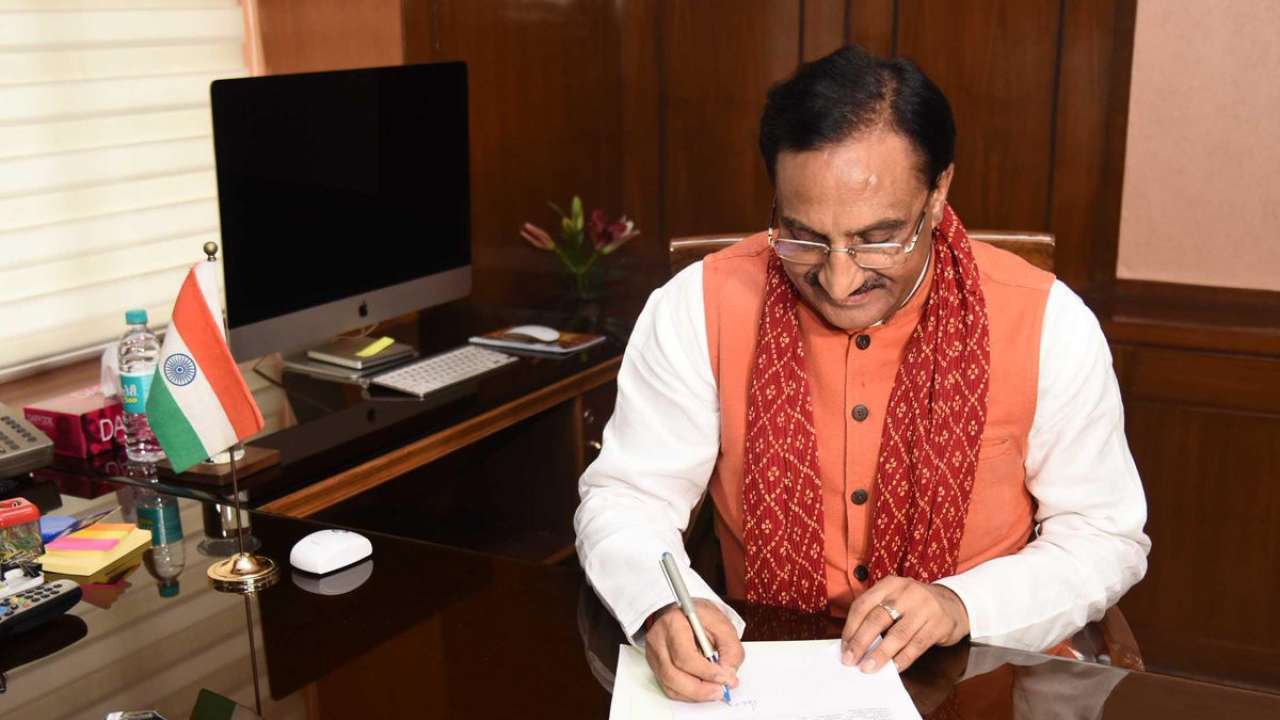Exclusive: NEP 2020 will bring radical changes to country's education system, says Ramesh Pokhriyal Nishank
In an exclusive interview to Zee News, HRD Minister Ramesh Pokhriyal Nishank said the National Education Policy 2020 will bring radical changes to the country's education system. Nishank also responded to criticism on the new education policy.

File Photo: Union HRD Minister Ramesh Pokhriyal Nishank
Union HRD Minister Ramesh Pokhriyal Nishank on Thursday said the new education policy is going to bring radical changes to the country's education system.
In an exclusive interview to Zee News, Nishank said the National Education Policy 2020 will strengthen basic education and also provided world-class higher education in the country.
"This will enhance the child along with mental education. This will prepare the child for world-class competition. Scientists are of the opinion that 85% of children's brain develops from the age of 3 to 6 years," he said.
"Provision of 360-degree holistic evaluation is provided in the new policy. That is why we have finished the system of 10+2. Our target is to bring 100% children to the education system until at least class 12," the minister said.
Nishank said the new education policy will fulfil the vision of the "New India."
"That is why we have provided the provision of vocational education from 6th class, provision of internship so that when the child comes out after 12th, then he will be fully skilful," he said.
He said there is now a provision of credit bank in higher education. There will be DG Locker for the students, where they can store all their degrees in one place, he added.
"I think that the education for which children used to go abroad can now be found in the country itself. We have will make a commission for higher education, (Higher Education Commission) under which UGC, AICTE and NCT will be brought under one banner," Nishank said on plans for higher education in the country.
On people being sceptical about the new policy, Nishank said this is Prime Minister Narendra Modi's government who emphasises on implementation before the plan.
Asked about the change in the name of the HRD Ministry, he said it will now be known as the Education Ministry. Not only the name, but the policy has also changed, he said.
Responding to people criticising the policy, the minister said, "Those who are raising questions about this policy, I would like to tell them that till now there has not been such a big consultation to make any policy in the world, as was done for this."
"This policy was not made in a meeting in any room. Suggestions were taken from more than 1.5 lakh gram panchayats. Teachers, students, parents, MPs, MLAs and even village representatives were consulted. Even after that, we put this education policy in the public domain. 2.25 lakh people gave their suggestion. Some of the suggestions of the people were incorporated by making two secretariats," he said.
Giving an analogy from the mythology, Nishank said the education policy is an "Amrit" (nectar) that came out of the "Samudra Manthan".
On critics, he said, "I do not understand how people get stuck on one point. It was suggested by the people that elementary education should be in the mother tongue, or in their regional language. There are 22 languages in this country. This was also a demand made by the states."
Which state would be opposed to primary education in the local language, he asked.
People are commenting witout even reading the entire education policy, Nishank alleged.